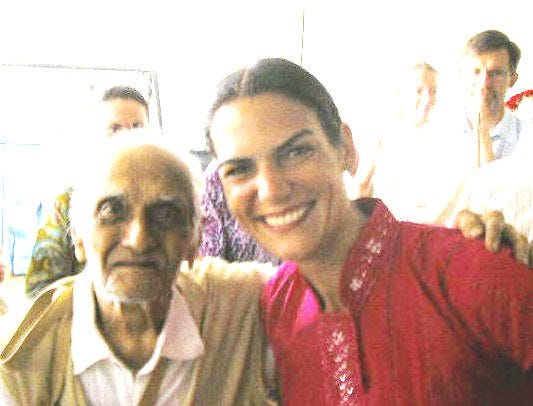I never expected to be someone who would have a guru. In fact, prior to meeting my own teacher, I would have told you I was completely put off, daresay disgusted by the whole thing…
The word guru simply means spiritual teacher, mentor or guide. In the East, it is quite normal and accepted to have such a teacher. This label has been given a bad rap in the West, where we are ultra-independent and sensitive to issues of power and power over – for good reason.
But what if it’s necessary? What if it happens anyway? What’s it like to have a guru?
My own Teacher and guruji, Ramesh Balsekar (1917-2009), was a sage, retired businessman and householder living in the metropolis of Mumbai, India. His final guru was Sri Nisargadatta Maharaj (1897-1981) – I Am That being his most well-known collection of talks. Nisargadatta lived and taught in a neighborhood called Khetwadi, South Bombay.
The whole juicy story of how I met Ramesh is recounted in my memoir, Truth Seeker. As it happened via Ramesh and the teachings of Advaita (non-duality), I encountered the gifts of liberation from persistent existential suffering and, by grace, the end of seeking.
In this short, informal clip of a recent Zoom satsang with my own sangha members, I tell a few stories of being with Ramesh in Bombay. I also discuss the role of bhakti (divine love, devotion) in the relationship with a teacher, who is there to help us connect with the Satguru, or teacher within.
Relationships with spiritual teachers, masters, and gurus are complex, powerful, and completely unique to the situation and student. They can also be crushing, enlivening, strange, and blessed.
Do you feel like running when you hear of these topics? Are you intrigued? Inspired? Perhaps you’ll hear something that piques your interest, pricks your ears.
Your comments are welcome.
With love,
Erin
P.S. You are welcome to attend satsang on Sundays, 9am Pacific. RSVP here.
Addendums and corrections:
- In the video, I mention the word Sindhula and mistakenly attribute it to “lion or tiger.” Nope. It is actually a derivation of “river” or “ocean.”
- I also mention the word weird as a derivation of a Celtic word for “wild.” Nope. It comes from the Old English wyrd, meaning “fate.”
- Here’s a sweet article written by another teacher and disciple of Ramesh, Gautam Sachdeva: “Ramesh Balsekar - Destiny’s child is 90.” It explains a bit about the simple yet profound crux of Ramesh’s teaching - there can be no separate, individual doer.
- BBC News article mentioning Leonard Cohen meeting Ramesh in Mumbai: “When the Light Got In for Leonard Cohen” (2016).















Share this post